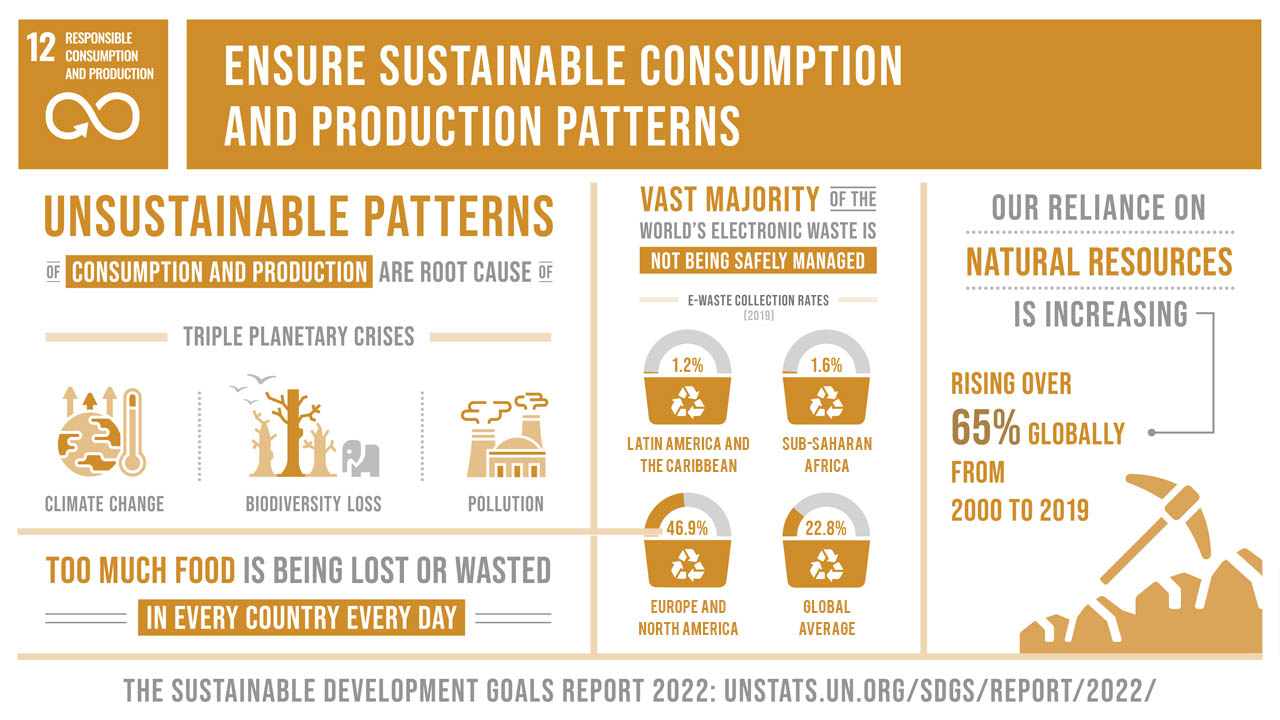Sustainability Today: It's time that we consume responsibly
 CREDIT: FANSHAWE SUSTAINABILITY
CREDIT: FANSHAWE SUSTAINABILITYAlthough spending does drive economic activity and prosperity in general, overspending depletes one's monetary reserves, and most items purchased ignore sustainability.
The last quarter of every year is the icing on the cake for every business. As the holiday season kicks in, consumer spending peaks. Amid the clarion of jingles and commotion at stores, what is being ignored is the cost of destabilization that we pay with every tap on a discounted product.
Participants of the PwC Holiday Outlook 2022 told surveyors that they are willing to spend more, or the same as last year, this holiday season, despite fears of inflation and rising costs. Although spending does drive economic activity and prosperity in general, overspending depletes one’s monetary reserves, and most items purchased ignore sustainability. This spells doom for: environment – cheap products produced irresponsibly and shipped long distances driving climate change; people – low wages paid to employees working in harmful conditions; planet – waste production, mining and deforestation fueling species extinction.
Domestic Material Consumption, a measure of total materials used to meet demands for goods and services within and outside a country, globally, rose by 65 per cent in just 19 years, from 2000 to 2019. In 2019, the value was 95.1 billion metric tons – 12.3 tons per person, equivalent to almost four rhinoceros!
Material consumption isn’t the only issue; what happens when the product has completed its lifetime? Electronics, for example, are a major product sold during the season, but e-waste management is still a distant dream in much of the world. In 2019, global generation of e-waste was 7.3 kg per capita, but only 1.7 kg was managed in an environmentally sound way. The e-waste collection rate in third world and developing nations is abysmal: sub-Saharan Africa is just 1.6 per cent and in Latin America and the Caribbean the figure is 1.2 per cent, compared to the 46.9 per cent in Europe and North America.
This is where the UN Sustainable Development Goal 12: ensure responsible consumption and production patterns steps in. It not only envisions a responsible relationship with our planet but also with ourselves too. It focuses on creating a circular economy, so waste is reduced at the source, and resource efficiency is reached. It also clearly demonstrates how each of the SDGs complement one another. For example, when we consume responsibly, we efficiently balance our budgets – think of Goal 1: no poverty and we support local businesses that ensure standard working conditions for their employees (Goal 8: decent work). Responsible consumption also applies to entertainment. This year’s football World Cup is a great example of how it should not be done. The tournament is being held in Qatar, a country where homophobia and suppression of women’s rights is blatant, and reports of forced labour of migrant workers in harsh and deadly conditions are abundant. Time and money spent celebrating this tournament supports these human rights violations and gives the impression that the world will overlook these misdeeds, as long as it is entertained.
As the year comes to an end, it’s time to look inward and reflect on our actions. You can start small and at college by being part of initiatives from Fanshawe Sustainability by attending SDG Labs to understand more about the goals; supporting the local economy by shopping at the farmers market and the worth project; biking to campus or taking the local transit to help reduce your carbon footprint; and changing someone’s world by a simple act of donation at the sharing shop. It’s up to us to consume responsibly…Happy holidays.
Days to look forward to:
- Dec. 3: International Day of Persons with Disabilities
- Dec. 5: World Soil Day
- Dec. 9: International day of Commemoration and Dignity of the Victims of the Crime of Genocide and of the Prevention of this Crime
- Dec. 10: Human Rights Day
- Dec. 12: International Day of Neutrality, International Universal Health Coverage Day
- Dec. 18: International Migrants Day
- Dec. 20: International Human Solidarity Day
- Dec. 27: International Day of Epidemic Preparedness















